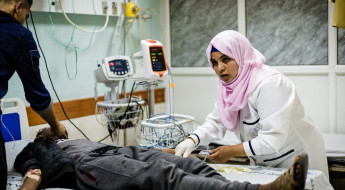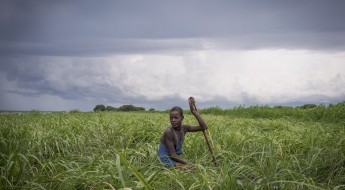Uprooted and abandoned in Gaza and the West Bank
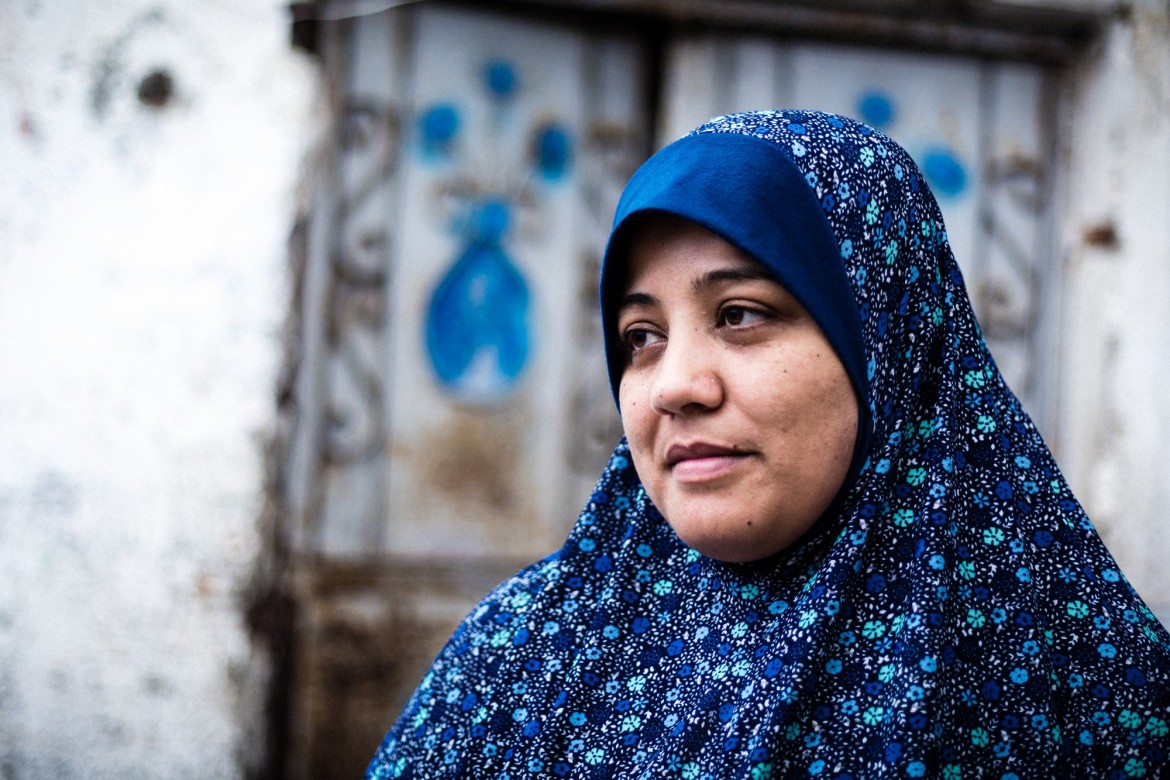 Um Mohammad, Gaza City“I don’t see any future for my children here in Gaza. I think about it so much that I sometimes wish my mind would stop working.”CC BY-NC-ND /Alyona Synenko/ICRC
Um Mohammad, Gaza City“I don’t see any future for my children here in Gaza. I think about it so much that I sometimes wish my mind would stop working.”CC BY-NC-ND /Alyona Synenko/ICRC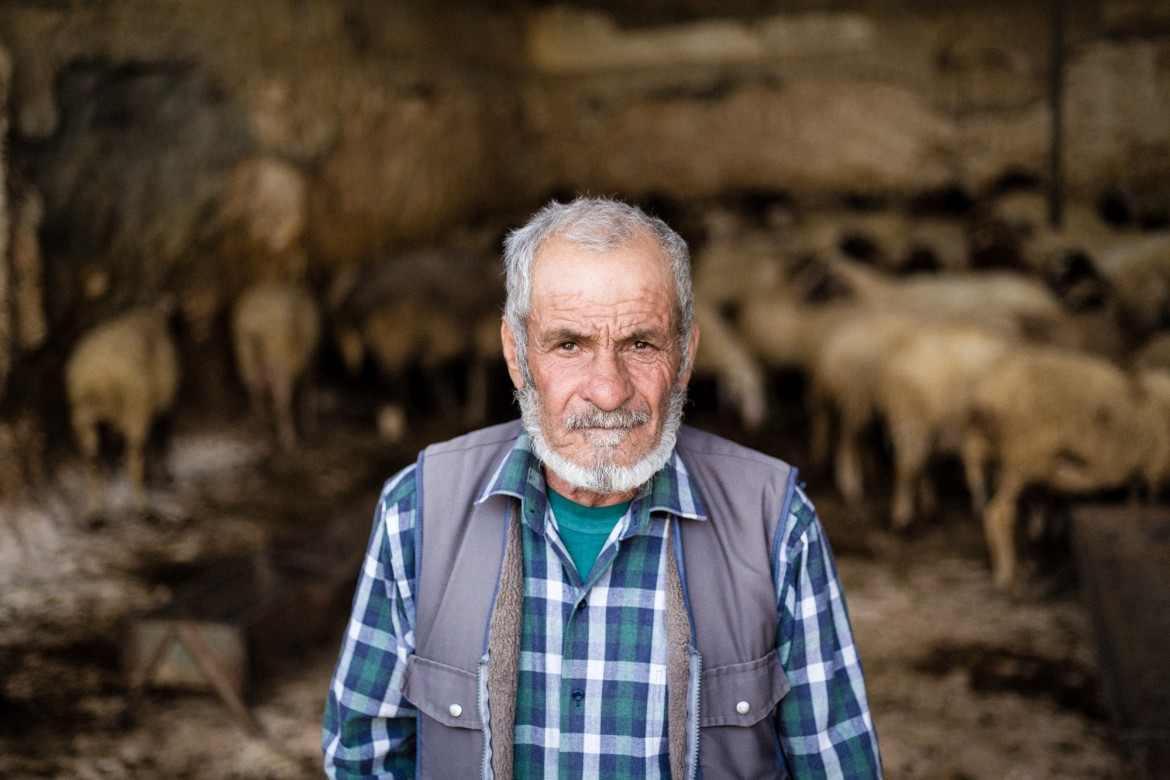 Ibrahim Al-Athara, Hebron“I can’t forget the feeling of freedom my land gave me before I lost it. The feeling that I could go anywhere with my sheep.”CC BY-NC-ND /Alyona Synenko/ICRC
Ibrahim Al-Athara, Hebron“I can’t forget the feeling of freedom my land gave me before I lost it. The feeling that I could go anywhere with my sheep.”CC BY-NC-ND /Alyona Synenko/ICRC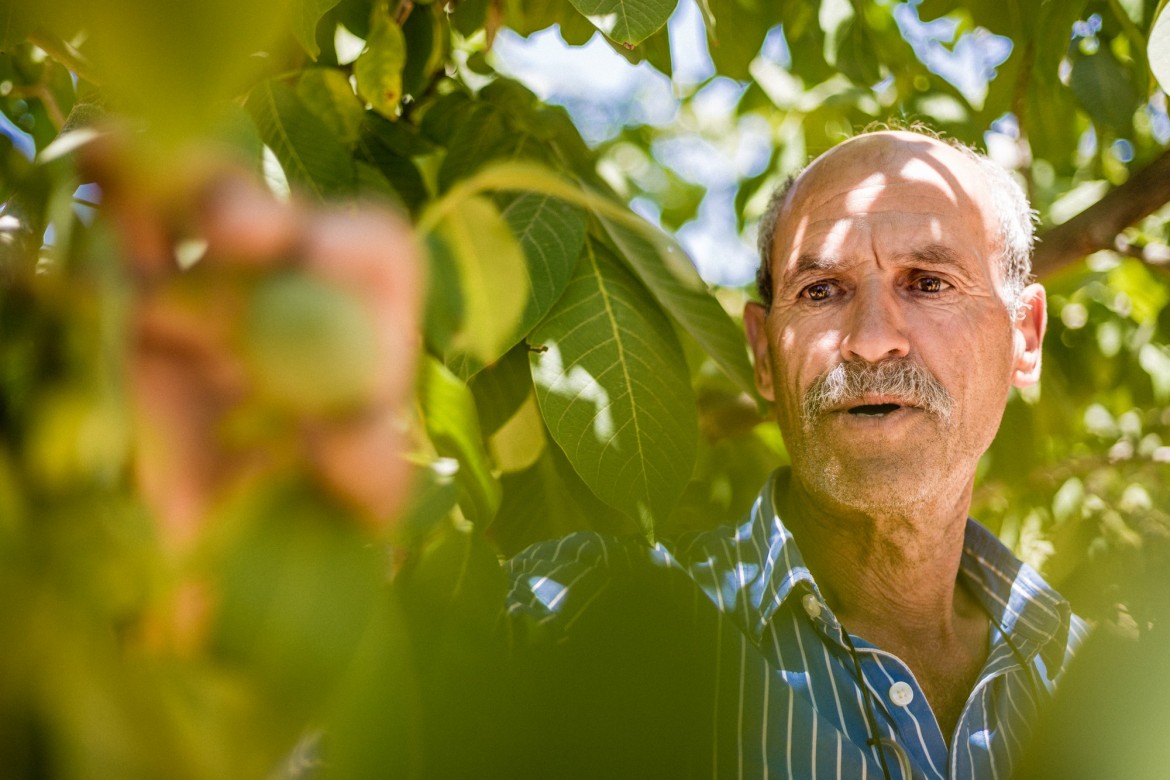 Salah Shahine, Bethlehem“My trees are like children to me: I planted the seeds, took care of them and watched them grow for many years. When I see them vandalized, I am overwhelmed by a feeling of loss.”CC BY-NC-ND /Alyona Synenko/ICRC
Salah Shahine, Bethlehem“My trees are like children to me: I planted the seeds, took care of them and watched them grow for many years. When I see them vandalized, I am overwhelmed by a feeling of loss.”CC BY-NC-ND /Alyona Synenko/ICRC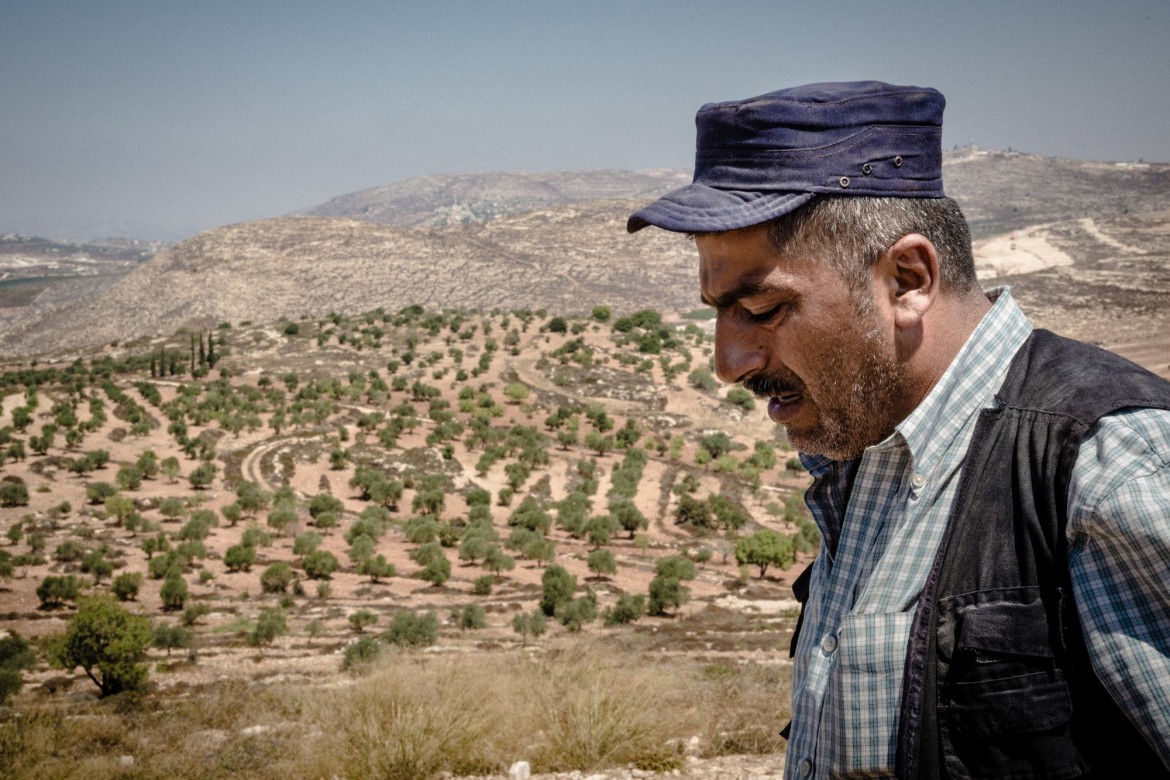 Awad Hazama, Ramallah“I saw olive trees planted by my grandfather burnt and uprooted. I spent all my childhood around those trees. It was unbearable to lose them.”CC BY-NC-ND /Alyona Synenko/ICRC
Awad Hazama, Ramallah“I saw olive trees planted by my grandfather burnt and uprooted. I spent all my childhood around those trees. It was unbearable to lose them.”CC BY-NC-ND /Alyona Synenko/ICRC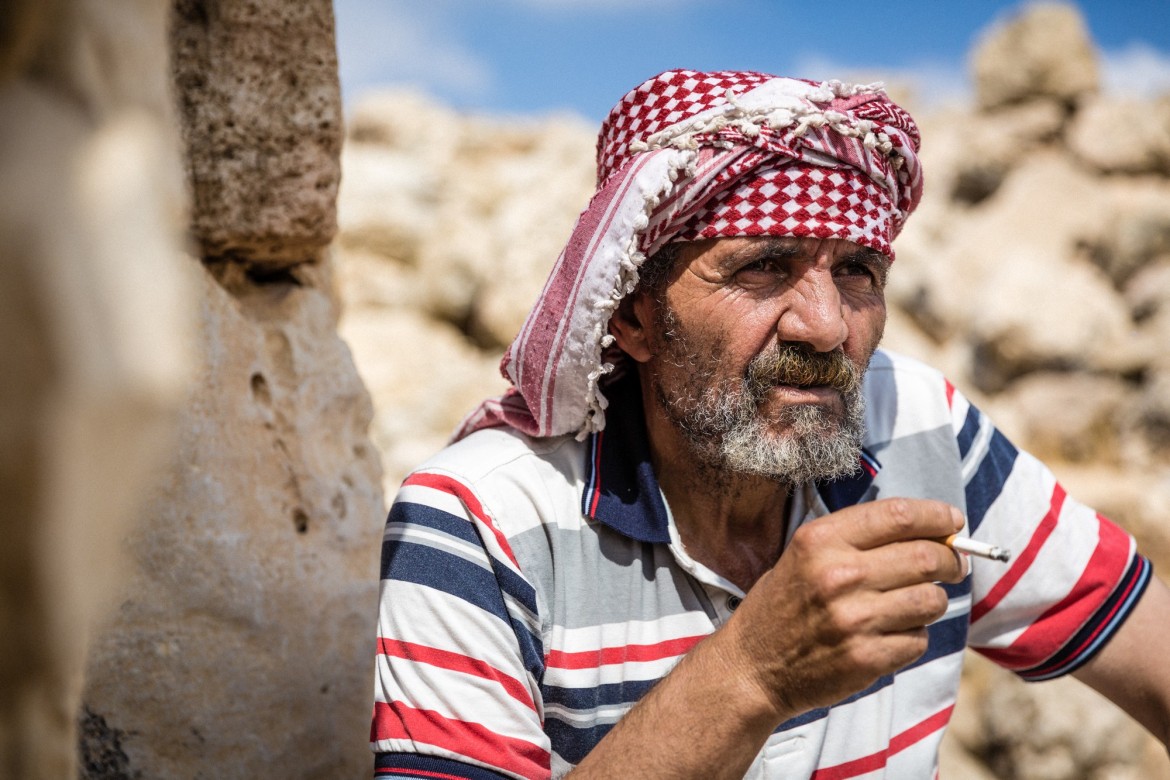 Rizeq Abu Nasser, Nablus“I know every single stone in this village. When we had to leave it, we left more than a place: we abandoned our way of life.”CC BY-NC-ND /Alyona Synenko/ICRC
Rizeq Abu Nasser, Nablus“I know every single stone in this village. When we had to leave it, we left more than a place: we abandoned our way of life.”CC BY-NC-ND /Alyona Synenko/ICRC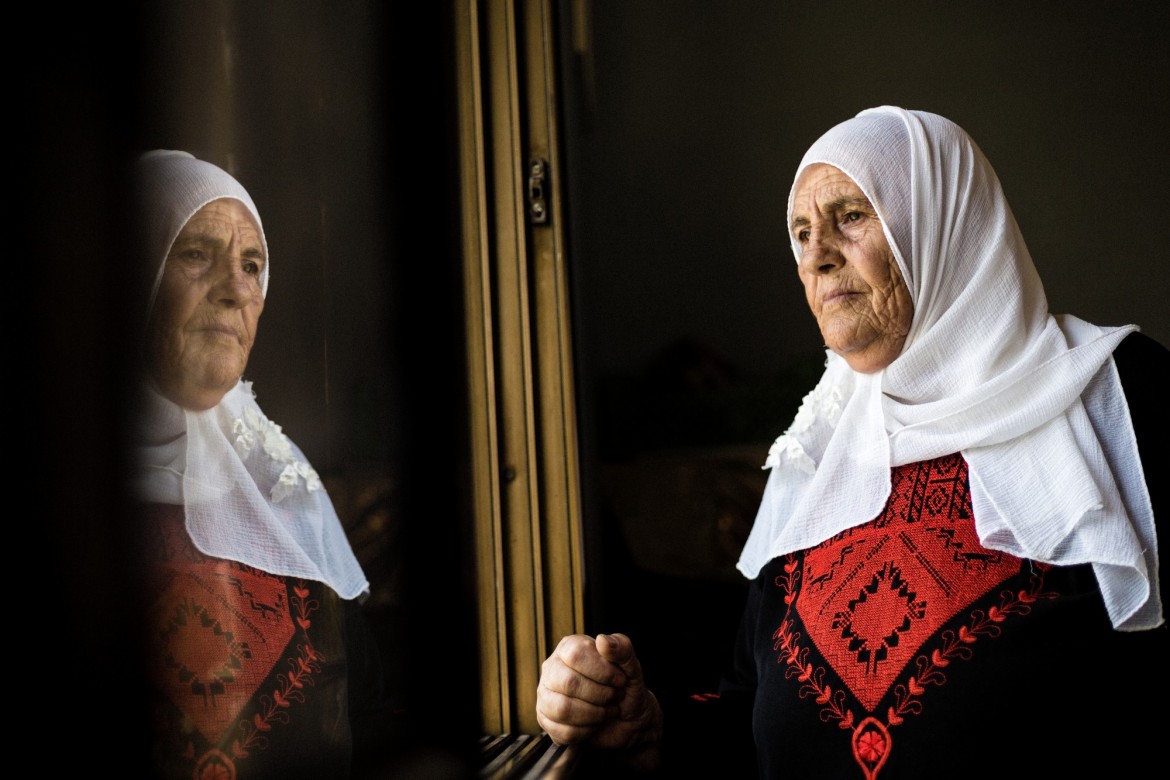 Huda Nassar, Nablus“When my son goes to work in his field I can’t stop thinking that something bad will happen to him. I want to be with him all the time.”CC BY-NC-ND /Alyona Synenko/ICRC
Huda Nassar, Nablus“When my son goes to work in his field I can’t stop thinking that something bad will happen to him. I want to be with him all the time.”CC BY-NC-ND /Alyona Synenko/ICRC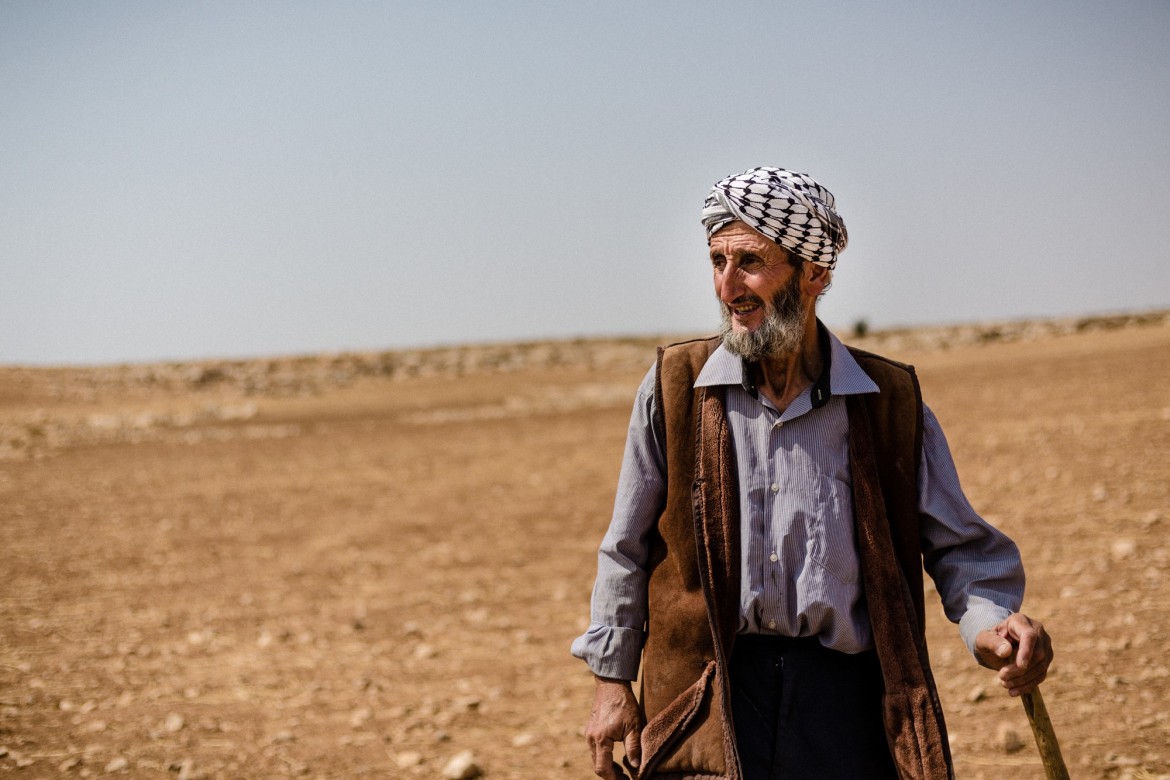 Ziad Makhamreh, Hebron“This place means everything to me. I was born here. Life has become so difficult that my wife and I are the only two people still living in our village.”CC BY-NC-ND /Alyona Synenko/ICRC
Ziad Makhamreh, Hebron“This place means everything to me. I was born here. Life has become so difficult that my wife and I are the only two people still living in our village.”CC BY-NC-ND /Alyona Synenko/ICRC Rima Abu Eisha, Hebron“Every day my husband and son go to work, I pray that they come back home safely. Now, we have a security camera. I spend my days watching what is happening outside so I can call and tell them to stay away if things go wrong.”CC BY-NC-ND /Alyona Synenko/ICRC
Rima Abu Eisha, Hebron“Every day my husband and son go to work, I pray that they come back home safely. Now, we have a security camera. I spend my days watching what is happening outside so I can call and tell them to stay away if things go wrong.”CC BY-NC-ND /Alyona Synenko/ICRC Mahmoud Abu Qbeita, Hebron“Crossing the check-point on the way to school, to see a doctor, buy groceries or visit a family member is our reality. We got so used to it, it has become normal. But, sometimes, I can’t help asking myself: why do we have to live such a life?”CC BY-NC-ND /Alyona Synenko/ICRC
Mahmoud Abu Qbeita, Hebron“Crossing the check-point on the way to school, to see a doctor, buy groceries or visit a family member is our reality. We got so used to it, it has become normal. But, sometimes, I can’t help asking myself: why do we have to live such a life?”CC BY-NC-ND /Alyona Synenko/ICRC
In Gaza and the West Bank, a powerful feeling of paralysis pervades.
Peter Maurer, the ICRC president, visited Israel and the occupied territories this week to speak to and learn from people on both sides of the conflict. These portraits are just a few of the people he heard from.
"Witnessing these situations profoundly affected me as a father and as a human being," said Maurer. "Every responsible political decision must be made bearing in mind the effect it has on the lives of ordinary people. It was a sobering experience for me to return after three years to see that things have only changed for the worse."


